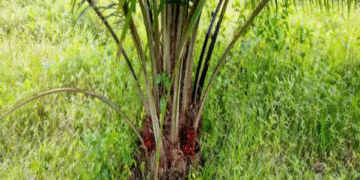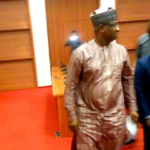The House of Representatives Committee on Internal Security has revealed terrorist threats to bomb the National Assembly Complex, alongside warnings from protesters planning to lock down the legislative seat.
Hon. Garba Muhammad, chairman of the Committee, revealed on Tuesday during a public hearing on a bill seeking to establish a Legislative Security Directorate for the National Assembly.
He painted a picture of the daily security breaches plaguing the complex.
“The National Assembly is going through a lot of security challenges; we have experienced car thefts, motorcycle thefts, vandalism, fake identity cards, and unwanted visitors accessing the National Assembly without documentation,” Muhammad said. “We have received threats from terrorists to bomb the National Assembly complex and threats from protesters to lock up the Assembly. Legislators are also exposed to threats from constituents and others who gain easy access into their offices without formal appointments,”
He expressed concerns that the ongoing security lapses could have far-reaching consequences for Nigeria’s democratic process if not urgently rectified.
“It is obvious that with the ongoing security challenges, if proper measures are not taken, they will truncate legislative activities in the National Assembly. And if activities are thwarted, there will be no representation, no oversight, no annual budget, no plenary at all. That will destabilise legislative procedure, democracy, and the stability of our nation,”
The public hearing centered on “A Bill for an Act to Provide for the Establishment and Functions of the Legislative Security Directorate in the National Assembly (HB 1632).” If passed, the proposed bill seeks to establish the Legislative Security Directorate to professionalise and coordinate all security operations within the National Assembly complex.
It will also set qualifications and conditions of service for the Sergeant-at-Arms and other personnel under the Directorate, aiming to create a unified, trained, and accountable security framework.
Security agencies like the Department of State Services (DSS) have not yet issued public statements confirming the specific bomb threats,
Muhammad emphasized the need for a “total approach to security management,” noting that the National Assembly’s openness to the public—while essential for democracy—has become a liability.
Thousands of visitors, lobbyists, and demonstrators pass through daily, often with minimal screening, turning the complex into a high-risk environment.
As Nigeria approaches another budget cycle and faces mounting socio-economic pressures, any disruption to legislative functions could trigger a constitutional crisis. Lawmakers are urging swift passage of HB 1632, with calls extending to state assemblies to adopt similar measures.
For now, the National Assembly remains on high alert. Security has been visibly tightened around the complex, but experts warn that without structural reforms, symbolic institutions like Parliament will continue to be soft targets in an era of evolving threats.
The nation watches as lawmakers balance accessibility with survival—knowing that the stability of Nigeria’s democracy may well depend on it.

Administrator and Writer





















































